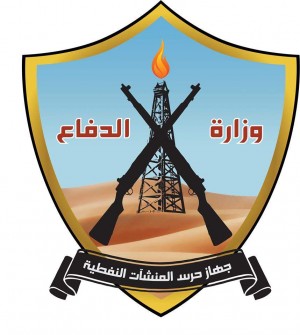By Seraj Essul and Jamal Adel.

Tripoli, 15 June 2014: The Petroleum Facilities Guard in Tripoli continues to wrestle with the problems . . .[restrict]of a commander who will not resign and a demand for some LD 377 million from Ibrahim Jadhran’s rebel PFG, which it is claimed is part of an agreement to reopen two of four export terminals it controls. The PFG provides the official guards for all oilfields, ports and oil and gas export facilities in Libya. It is administratively separate from the General Military Staff.
Idris Bukhamada, the man appointed last year by Ali Zeidan to head the PFG is still refusing to resign, though a PFG spokesman told the Libya Herald that the organisation’s headquarters in Tripoli’s Salahuddin district has been taken over by Ali Al-Ahrash, the man appointed to succeed him and the original commander of the PFG.
Bukhamada is reportedly refusing to quit because he rejects the deal cut by the interim government of Abdullah Al-Thinni with the Ajdabiya-based rebel PFG members led by Ibrahim Jadhran. Part of the agreement was that Bukhamada should be replaced by Ahrash, who reportedly enjoys widespread report within the PFG. It was also apparently agreed that the guard’s HQ should be relocated to Brega.
A further element of the settlement was that the rebel section of the PFG should be given backpay after their wages were stopped by the Zeidan government in November. According to the PFG, of the 5,600 guards in the Middle Region of the country, no more than 2,500 are on record as having sided with Jadhran.
However, Jadhran’s spokesman Ali Al-Hassi, today told this paper that there are in fact 11,000 guards who are demanding backpay and that this should be dated from May 2013 when, he insisted, their wages, which averaged LD 1300 a month, were stopped. The total claim for salaries and compensation plus reimbursement for supplies was some LD 377 million.
Hassi said that he believed that the government had already handed LD 100 million to the Chief of Staff but none of these funds had yet found their way to Jadhran’s rebel guards. Hassi pointed out that as part of the settlement agreed with Thinni, two of the four oil export terminals, Harega and Zueitina, blockaded by Jadhran’s people since last June, had been reopened. However Hassi admitted that since the oil fields supplying the terminals were now shut down, there was currently no production to export. [/restrict]









